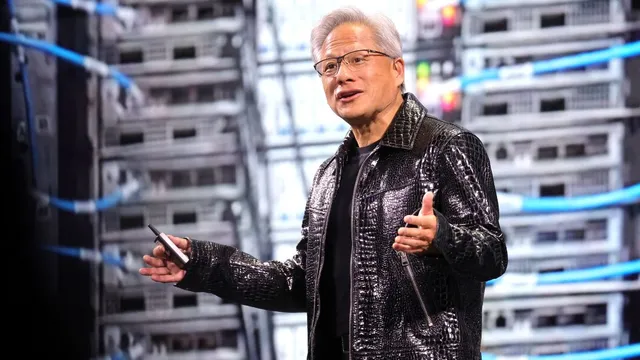- By Prateek Levi
- Mon, 03 Feb 2025 04:25 PM (IST)
- Source:JND
Nvidia CEO Stock Sale: There has been some noise in the stock market recently as Jensen Huang, chief of Nvidia , has been selling-off a massive $14 million worth of stock every day. This move has left investors scratching their heads, especially since it follows a big surge in Nvidia’s stock price, only for it to dip slightly afterward.
To put it in perspective, five years ago, Huang’s net worth was around $3.73 billion. Today, it’s ballooned to more than $92 billion, though it’s taken a hit from a peak of $119 billion earlier this year.
So, Why Is He Selling?
Huang’s stock sales are part of a 10b5-1 plan, which is essentially a pre-arranged trading strategy designed to avoid any accusations of insider trading. It’s a legal way for insiders like Huang to sell their shares without being accused of timing the market. However, the fact that he’s unloading shares during such a high point in the stock’s performance—before it started to dip—has sparked some speculation. Why sell now? Does he know something the rest of us don’t?
ALSO READ: Indian Railways Introduces SwaRail Superapp For Ticket Booking, Food Orders, and More
The Investor Concerns
Experts like Nell Minow, a corporate governance specialist, have weighed in, and the message isn’t exactly reassuring. Minow believes that Huang’s selloff could be a sign that the stock has become too inflated and that even the company’s leadership might be feeling uneasy about the future. "If they’re not confident in the stock, why should I be?" Minow asks, reflecting the uncertainty some investors are feeling.
While Huang has sold large amounts of stock before—$117 million last year—the scale of this year’s selloff has raised alarms. In July alone, he sold off $323 million, which is much bigger than in previous years. For analysts, it’s the timing that’s worrying. After such a strong performance, why would the CEO start cashing out?
A Different View: A Smart Strategy?
Not everyone sees Huang’s stock sales as a red flag. James Reda, who works at a consulting firm in Chicago, thinks Huang is doing this in a way that minimizes market disruption. By sticking to his 10b5-1 plan and selling in smaller chunks, Huang is trying not to flood the market with too many shares at once, which could drag down the stock price.
What’s His Compensation Like?
Looking at Huang’s compensation package gives more context to his stock sales. Nvidia’s recent filing shows that he earned around $34.17 million in total for 2024. This includes a salary of nearly $1 million, stock awards worth $26 million, and another $4 million based on performance. Before he started selling off his shares, Huang owned over 93 million Nvidia shares—almost 4% of the company. Some experts think that’s too much and that it might be time for Nvidia to stop awarding him so much stock. If he already owns so much, why not lock it up until years after he leaves the company, in a kind of "golden handcuff" arrangement?
Governance Issues and Succession Concerns
There have been growing concerns and criticisms about Navidia's corporate governance. Minow pointed out that only one member of the company’s 12-person board has a background in corporate governance, which isn’t exactly reassuring. More transparency is needed, particularly around who will take the reins when Huang eventually steps down. Without clear succession plans, investors can start to get nervous, which could lead to volatility in the stock price.
Key Takeaways
Why is Huang selling? He’s following a pre-scheduled plan to avoid insider trading, but the timing of the sales, especially after a stock surge, has raised concerns.
How does this affect investors? The selloff, combined with Nvidia’s lack of transparency around leadership succession, is making some investors question the company’s future.
What’s the problem with Nvidia’s governance? The company needs to be more transparent, especially when it comes to succession planning. Clear plans for leadership transitions help calm investor nerves and keep the stock stable.
At the end of the day, Huang’s massive stock selloff is leaving a lot of unanswered questions. Investors are wondering if he’s losing confidence in Nvidia’s future. For the company to reassure its shareholders, better transparency and clearer governance plans might be in order.
(Includes inputs from online sources)
ALSO READ: DeepResearch ChatGPT: All You Need To Know About OpenAI’s Revolutionary New AI Agent

